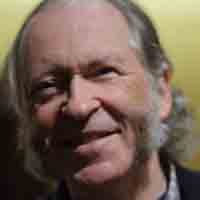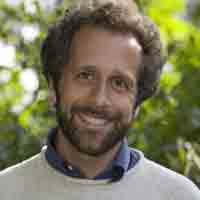Science and Civilization in Islam
HSCI 3453
- Dr. Peter Barker, Dept. of History of Science
Dr. Barker intends to approach this course using the tools of cultural history, and presupposing neither special language skills nor scientific expertise on the part of students. He firmly believes that historical causation reaches into the present. Contemporary fears and prejudices against Islamic civilization can best be allayed by undermining the idea that “Islam” and “the West” have ever really been insulated from each other. Dr. Barker proposes to demonstrate the essential Islamic contributions to the development of Italian Renaissance art, the Western medical tradition, and the “new” astronomy that supposedly started the Western “Scientific Revolution.”
Some indications: the development of perspectival art, by Brunelleschi and Alberti, depended directly on Islamic theories of optics and vision originating with Ibn al-Haytham (Latin: Alhazen, c. 965-1039 CE). The most important medical treatise of Ibn-Sina (Avicenna, 980-1037 CE), the Canon, remained the foundation of medical teaching in both Islam and Europe until well into the eighteenth century. And the “novel” astronomical techniques introduced by Nicholas Copernicus (d. 1543) were only novel to Northern Europeans; they were all developed by Nasir al-Din al-Tusi (1021-74 CE) and his successors in the tradition of mathematical astronomy he founded at Maragha in Persia, and used without attribution by Copernicus. The course will begin with a section establishing a general historical framework, and then proceed through three content modules on art, medicine and astronomy. Course materials this semester will specifically link to the ongoing Galileo's World exhibit and will also be complemented by a speaker program that is free and open to the public.
A note on the History of the course: History of Science 3453 “Science and Civilization in Islam” has not been taught since 2007. Since then, treatments of Islamic science in both undergraduate and graduate teaching have been confined to segments of survey courses. However, History of Science faculty maintain an active research agenda in this area, including support for current graduate student research. Dr. Barker’s research in early modern cosmology has recently turned to Islamic topics, especially intellectual exchanges between the Ottoman Empire and Venice. So, by teaching this course now he hopes to revive HSCI 3453 as a regular part of our undergraduate teaching schedule. All Dream Courses invite a series of guests, giving students an opportunity to interact with international experts in this field. Dr. Barker will be able to consult these same experts on course design and content for subsequent years, when I hope the course will again be taught on a regular schedule.
The Islamic Roots of Western Science

Tuesday, January 26, 2016
7:30 pm - 9:00 pm
Zarrow Hall Community Room
Peter Barker
History of Science, University of Oklahoma
Dr. Barker is the author of many papers on early modern science and, with Hanne Andersen and Xiang Chen, The Cognitive Structure of Scientific Revolutions (Cambridge, 2013). He is the associate Editor of Centaurus, the journal of the European Society for the History of Science.
The Eunuch's Galleons: Cultural Exchange and the Technology of Warfare in the Early Modern Indian Ocean

Monday, February 1, 2016
7:30 pm - 9:00 pm
Bizzell LL118
Giancarlo Casale
History, University of Minnesota.
Casale is the author of The Ottoman Age of Exploration (Oxford University Press, 2010). Based on extensive research in the archives of both Turkey and Portugal, it tells the surprising story of Ottoman expansion into the Indian Ocean during the sixteenth century, in competition with the better-known explorations of Spain and Portugal. He is the co-executive editor, with Nabil Matar, of the Journal of Early Modern History.
Sara Scalenghe - Disability History in Comparative Perspective: The Ottoman Empire and Early Modern Europe

Thursday, March 24, 2016
7:30 pm - 9:00 pm
Place: Bizzell Library, LL118 Community Room
Sara Scalenghe
History, Loyola University, Maryland
Scalenghe's book, Disability in the Ottoman Arab World, 1500-1800 (New York: Cambridge University Press, 2014), was awarded an Honorable Mention for the 2015 British-Kuwait Friendship Society Book Prize in Middle Eastern Studies (administered by the University of Cambridge). Dr. Scalenghe serves on the Editorial Review Board of Disability Studies Quarterly and on the Board of Directors of the Disability History Association.
Robert G. Morrison - An Economy of Knowledge in the 16th Century Mediterranean

Thursday, April 7, 2016
7:30 pm - 9:00 pm
Place: Harlow Room, Bizzell Library 5th floor
Robert G. Morrison
Religion, Bowdoin College
Morrison's books include The Intellectual Career of Niẓām al-Dīn al-Nīsābūrī (Routledge, 2007), which won the 2009 World Prize for the Book of the Year of the Islamic Republic of Iran in Islamic studies, and Astronomy in al-Andalus: Joseph Ibn Naḥmias’ The Light of the World (University of California Press, 2015). With Y. Tzvi Langermann, he edited Texts in Transit in the Medieval Mediterranean (University of Pennsylvania Press) which is forthcoming in 2016. He also wrote the chapters on Islamic astronomy for the Cambridge History of Science and on Islamic science for the New Cambridge History of Islam, with Sonja Brentjes.

